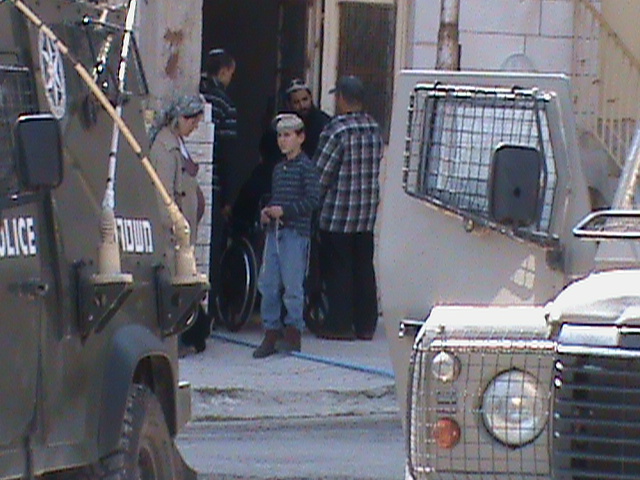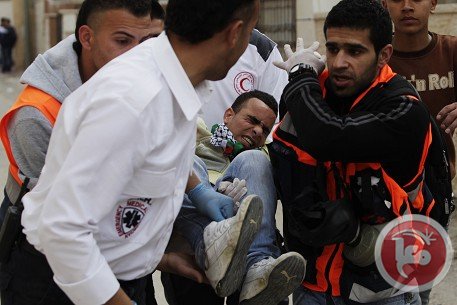Year: 2012
-
Settlers occupy Palestinian house in Al Khalil
by Paige and Mira 31 March 2012 | International Solidarity Movement, West Bank Early Thursday morning approximately fifteen to twenty settlers occupied the house of the Abu Rajab family on Shuhada street near the Qeitun checkopint in Al Khalil (Hebron). The settlers entered the house under the protection of the Israeli army and border police…
-
Photos: “Land Day across Israel and Palestinian territories”
30 March 2012 | Denver Post Land Day, which began in 1976, marks the day Israeli forces killed six Palestinians during a protest against Israeli occupation of what Palestinians consider to be their land. Palestinians around the world will commemorate Land Day with protests and demonstrations. Read more: Photos: Land Day across Israel and Palestinian territories…
-
Red Crescent medics treat 339 protesters in the West Bank
30 March 2012 | Ma’an News Agency BETHLEHEM (Ma’an) — The Palestinian Red Crescent treated 339 protesters on Friday at protests around the West Bank to mark Land Day, a spokesman said. Muhammad Ayyad told Ma’an that five people were seriously injured and 55 hospitalized as protesters commemorated six Palestinians who were killed by Israeli…



